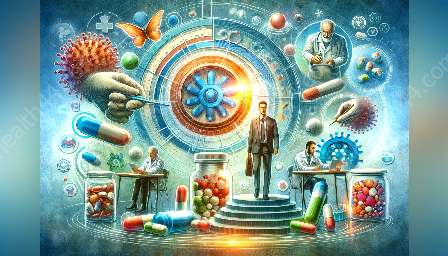Pharmacotherapy and pharmacy play critical roles in understanding and managing drug metabolism, which has a profound impact on medication effectiveness and safety. This topic cluster delves into the complex processes of drug metabolism, covering its mechanisms, factors, and implications for pharmacotherapy and pharmacy.
Overview of Drug Metabolism
Drug metabolism refers to the biochemical alteration of drugs within the body, leading to the formation of metabolites that can be further processed or excreted. This process primarily occurs in the liver, although other organs such as the kidneys and intestines also contribute to drug metabolism. There are two main phases of drug metabolism: Phase I and Phase II.
Phase I Metabolism
In Phase I metabolism, drugs undergo chemical reactions, such as oxidation, reduction, and hydrolysis, to make them more polar and water-soluble. The most common enzyme system involved in Phase I metabolism is the cytochrome P450 (CYP) family, which plays a crucial role in metabolizing a wide range of drugs. Genetic variability in CYP enzymes can significantly impact drug metabolism, leading to variations in drug response and potential adverse effects.
Phase II Metabolism
Phase II metabolism involves conjugation reactions, where drugs or their Phase I metabolites are combined with endogenous molecules to further enhance their water solubility and facilitate excretion. Enzymes responsible for Phase II metabolism include glucuronosyltransferases, sulfotransferases, and glutathione S-transferases.
Factors Influencing Drug Metabolism
Several factors can influence the rate and extent of drug metabolism, including genetic variations, age, gender, disease states, and concomitant use of other medications. Genetic polymorphisms in drug-metabolizing enzymes can lead to distinct phenotypes, affecting individuals' ability to metabolize certain drugs effectively. Age-related changes in drug metabolism, particularly in the elderly, can impact medication dosing and response. Additionally, gender differences in drug metabolism have been observed, with hormonal influences playing a role.
Implications for Pharmacotherapy
Understanding drug metabolism is crucial for pharmacotherapy, as it directly affects drug efficacy, toxicity, and interactions. Pharmacotherapy aims to optimize medication regimens based on individual patient characteristics, which include their drug metabolism capacity. Pharmacists and healthcare providers must consider a patient's metabolic phenotype and potential drug interactions when selecting and dosing medications. Pharmacogenomics, the study of genetic variations influencing drug response, has gained prominence in tailoring pharmacotherapy to individual genotypes.
Role of Pharmacists in Drug Metabolism
Pharmacists play a vital role in elucidating drug metabolism concepts to patients and healthcare providers, ensuring safe and effective medication use. They provide expertise in drug interactions, dosing adjustments based on metabolic phenotypes, and counseling on the implications of genetic variations in drug metabolism. Pharmacists also contribute to pharmacovigilance by monitoring and reporting adverse drug reactions related to altered drug metabolism.
Conclusion
Drug metabolism is a complex and dynamic process that significantly influences the effectiveness and safety of pharmacotherapy. Understanding the mechanisms and factors affecting drug metabolism is essential for healthcare professionals in optimizing medication regimens and ensuring patient well-being. Pharmacy professionals play a crucial role in applying this knowledge to improve medication management and patient outcomes.


